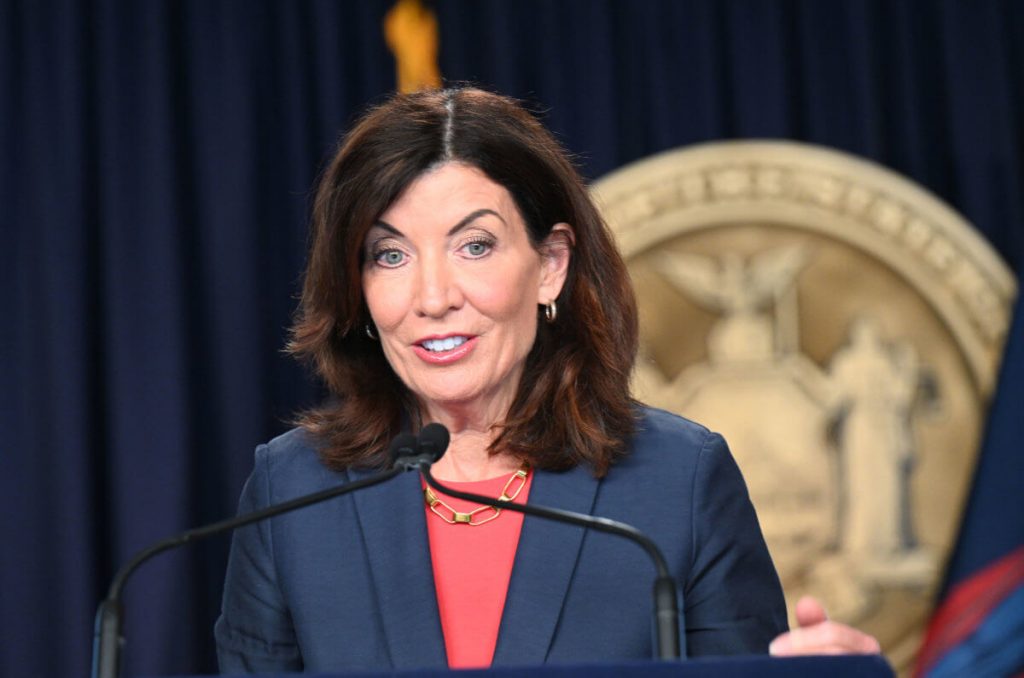The future of mental health studies could be changing in New York state.
On Aug. 25, 2022, New York State Gov. Kathy Hochul announced that $4 million will be granted to all SUNY and CUNY schools to improve mental health studies and incentivize minorities and multilingual students to pursue degrees in the field. The funds will be split evenly among SUNY and CUNY institutions, with $2 million dollars going toward each. From there, the money will be divided among colleges and universities in each system.
The grant is intended to be used for internships, scholarship opportunities, tuition assistance and stipends for minority and multilingual students dedicated to pursuing a degree in mental health. Hochul believes that this will, in turn, not only strengthen mental health programs in New York state but also will ensure the workforce is diverse and inclusive.
Hochul said the funding will help build reliability in health care services, while eliminating disparities in the deliverance of mental health care to minority and multilingual populations.
“This partnership will provide incentives for underrepresented students to enroll or remain in mental health programs,” Hochul said in a press conference.
The Office of New York State Mental Health (OMH) Commissioner issued a statement in addition to Hochul’s announcement, describing the potential benefits of the project.
“By partnering with SUNY and CUNY, we will be better able to recruit and retain a more diverse and inclusive workforce that will provide insights and experiences we can use to reach out to marginalized and under`served communities,” the OMH Commissioner’s statement read.
According to the press briefing, the OMH is confident that New York state is making “great strides” to improve diversity in the mental health workforce.
“Oftentimes, a barrier to care for our students and others seeking mental health care is not having access to a practitioner that can relate to or intimately understand their struggles,” SUNY Interim Chancellor Deborah Stanley said. “We know that our unique backgrounds, cultures and languages only make our workforce stronger.”
Although Hochul and the OMH are optimistic that the $4 million in funding will bring more diversity into mental health studies in the state of New York, Sevda Sarmineva, a senior majoring in English, suggested the money may not bring in more prospective students, even with assistance from universities.
“Giving more money to a certain area is [not] going to attract students if they’re not already interested,” Sarmineva said. “I don’t think just giving money to mental health studies is going to interest people who may not already have a good relationship with the inadequate resources on campus.”
Sarmineva expressed disappointment in the mental health services already in place at Binghamton University. However, she offered a solution to this issue that she hopes the University will look into.
“I think that if they’re going to focus on trying to catch the interest of students of color or multilingual students, that the school has to do more about caring for those students in the first place,” Sarmineva said. “Wanting to attract people to work in mental health care is wonderful, but many people are discouraged when it has not worked for them personally.”
However, other students are optimistic about the change the state could have in its future. Sara Elzourkany, a sophomore majoring in psychology, commented on the many opportunities that could result from the funding.
“The field is already growing in popularity with society’s improving discourse around mental health, especially among [people of color] and first [generation] students within their cultures,” Elzourkany said. “With increased funding, this career path will become even more attractive.”
Elzourkany also called on the University to provide more opportunities for its students majoring in psychology.
“There really isn’t anywhere to get more involved in the psychology field, aside from the Student Psychological Association, whereas there are a slew of resources available for the hard sciences,” Elzourkany said. “On this note, it would be extremely helpful, for psychology majors and lots of other students, if the University used the money to hire more academic advisors for Harpur College.”
More information can be found here.



